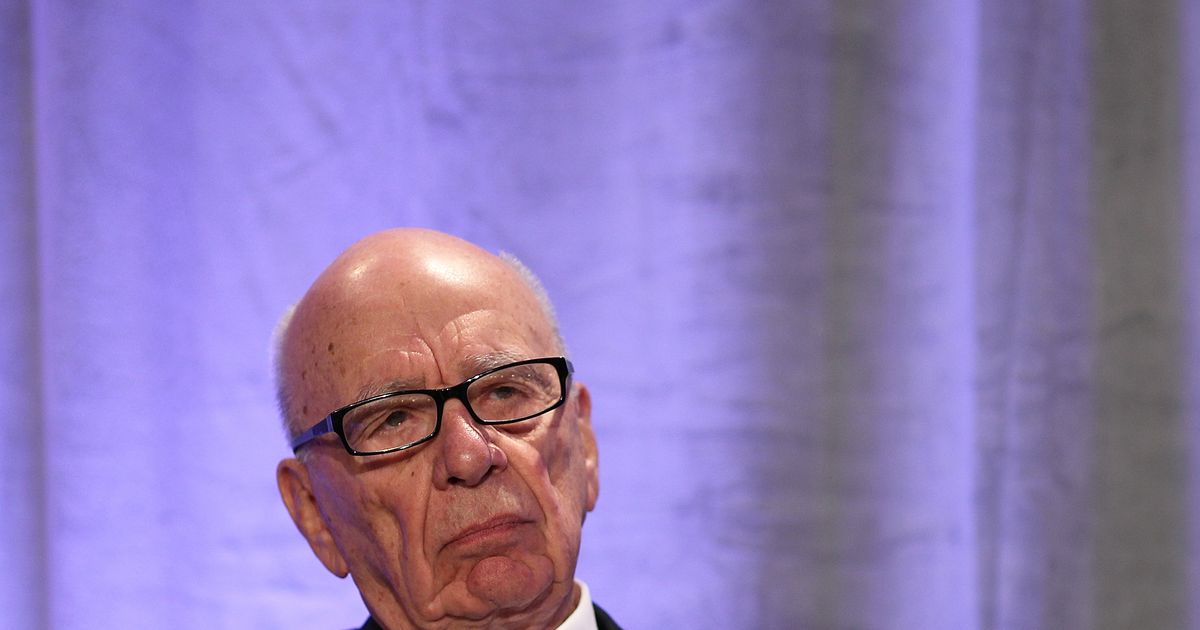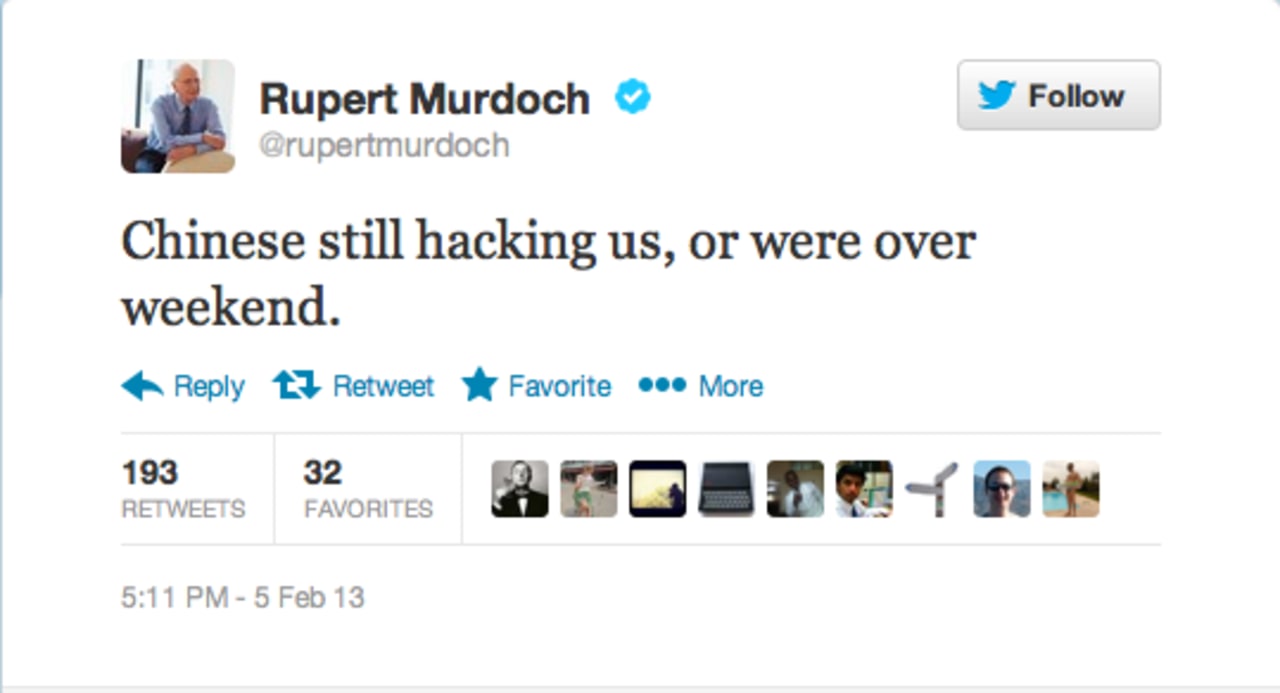When Rupert Murdoch speaks, the world listens. And this time, he's not holding back. Murdoch criticizes WSJ over article—a move that has everyone buzzing. But why is this such a big deal? Let's dive in and find out what's really going on behind the scenes.
Imagine this: one of the most powerful media moguls in the world calling out one of his own flagship publications. Sounds dramatic, right? Well, it is. Rupert Murdoch, the man behind some of the biggest names in media, has taken a strong stance against an article published by The Wall Street Journal. This isn't just any article—it's one that seems to have struck a nerve with the media titan himself.
Let’s face it, when someone as influential as Murdoch criticizes WSJ over article content, it sparks questions. Is this about journalistic integrity? Or is there more to the story? Stick around because we’re about to break it all down for you in a way that makes sense—even if you’re not a media expert.
Read also:Musk Faces Social Security Issues The Untold Story Behind The Tech Titans New Challenges
Who is Rupert Murdoch? A Quick Bio
Before we dive deep into why Murdoch criticizes WSJ over article, let's take a moment to understand who Rupert Murdoch really is. This guy didn’t just wake up one day and decide to run a newspaper empire. Nope, this is a story of ambition, strategy, and sometimes controversy.
Rupert Murdoch: The Man Behind the Media Empire
Rupert Murdoch was born in Melbourne, Australia, on March 11, 1931. He inherited his first newspaper, The News of Adelaide, after his father’s death. From there, he built an empire that now spans continents. Today, Murdoch is the chairman and co-CEO of News Corp, a company that owns The Wall Street Journal, among other major media outlets.
| Full Name | Rupert Keith Murdoch |
|---|---|
| Birth Date | March 11, 1931 |
| Birth Place | Melbourne, Australia |
| Net Worth (2023) | $15.7 billion |
| Companies | News Corp, Fox Corporation |
Why Murdoch Criticizes WSJ Over Article?
Okay, so now that we know who Rupert Murdoch is, let's talk about the elephant in the room. Why exactly is he criticizing The Wall Street Journal? Turns out, it’s not just about a random article. This is about principles, perceptions, and possibly politics.
It’s Personal
Murdoch criticizes WSJ over article because he believes the article in question misrepresents his views or actions. Now, let’s be real here—this isn’t the first time there’s been tension between a publisher and their content. But when the publisher is also the owner, things get spicy.
- Article in question: Focuses on a sensitive topic.
- Murdoch’s stance: Claims the article lacks balance.
- Journalistic integrity: A hot-button issue in today’s media landscape.
Understanding the Article in Question
The article that sparked all the drama reportedly delves into a controversial subject matter. While we can’t get into the nitty-gritty without crossing legal lines, let’s just say it’s not your everyday fluff piece. Some say it questions Murdoch’s leadership style, while others believe it’s more about the direction of his companies.
What’s the Big Deal?
Here’s the kicker: Murdoch criticizes WSJ over article because he feels it undermines his authority. In the world of media, perception is everything. If the public starts questioning the integrity of a publication owned by Murdoch, it could have ripple effects on his entire empire.
Read also:Kim Blocks Norths Visit To Kanye The Inside Story You Need To Know
Journalistic Integrity: A Balancing Act
When Murdoch criticizes WSJ over article, it brings up a critical conversation about journalistic integrity. Should a publication owned by someone be allowed to criticize them freely? Or is there an inherent conflict of interest?
Key Points to Consider
- Freedom of the press vs. ownership influence.
- How far should journalists go to maintain objectivity?
- Public perception of media bias.
What Do Experts Say?
Experts in media and journalism have weighed in on the situation, offering insights that help us understand both sides of the argument. Some argue that Murdoch criticizes WSJ over article because he’s trying to protect his legacy. Others believe it’s a necessary dialogue about the future of journalism.
Data and Stats
According to a 2023 survey by the Pew Research Center, trust in the media has been declining over the years. This makes Murdoch’s stance even more significant. If people perceive his criticism as an attempt to silence dissenting voices, it could further erode trust in his publications.
How Does This Impact Readers?
At the end of the day, it’s the readers who are affected by these kinds of disputes. When Murdoch criticizes WSJ over article, it raises questions about the credibility of the information we consume daily. Are we getting the full story, or are we being fed a narrative?
What Can You Do?
- Stay informed by cross-referencing multiple sources.
- Think critically about the content you consume.
- Engage in conversations about media ethics.
Is This Just a One-Off Incident?
Not really. Murdoch criticizes WSJ over article, but this isn’t the first time he’s had disagreements with his own publications. In fact, it’s part of a larger trend where media owners and editors butt heads over editorial decisions.
Historical Context
From the early days of print media to the digital age, the tension between ownership and editorial independence has been a recurring theme. Murdoch’s actions are just the latest chapter in this ongoing saga.
What Does the Future Hold?
As we look ahead, the question remains: will Murdoch continue to criticize WSJ over article content, or will he take a step back and let the editors do their job? Only time will tell, but one thing’s for sure—this isn’t the last we’ll hear about it.
Predictions
- More transparency in editorial processes.
- Increased focus on media literacy.
- Potential changes in how publications are managed.
Final Thoughts
In conclusion, when Murdoch criticizes WSJ over article, it’s more than just a disagreement—it’s a reflection of the challenges facing modern journalism. As readers, it’s our responsibility to stay informed and think critically about the information we consume.
So, what’s next? Share your thoughts in the comments below. Do you agree with Murdoch’s stance, or do you think the WSJ should have the freedom to publish whatever they want? Let’s keep the conversation going.
Table of Contents
- Who is Rupert Murdoch? A Quick Bio
- Why Murdoch Criticizes WSJ Over Article?
- Understanding the Article in Question
- Journalistic Integrity: A Balancing Act
- What Do Experts Say?
- How Does This Impact Readers?
- Is This Just a One-Off Incident?
- What Does the Future Hold?
- Final Thoughts
And there you have it—a deep dive into why Murdoch criticizes WSJ over article. Stay tuned for more updates as this story unfolds. Until then, keep questioning, keep learning, and most importantly, keep thinking critically.


